
How To Maintain Your Garden
Just like the inside of a property, a garden can soon lose it’s good looks if it’s not properly cared for. Here are some tips on how to maintain your garden.
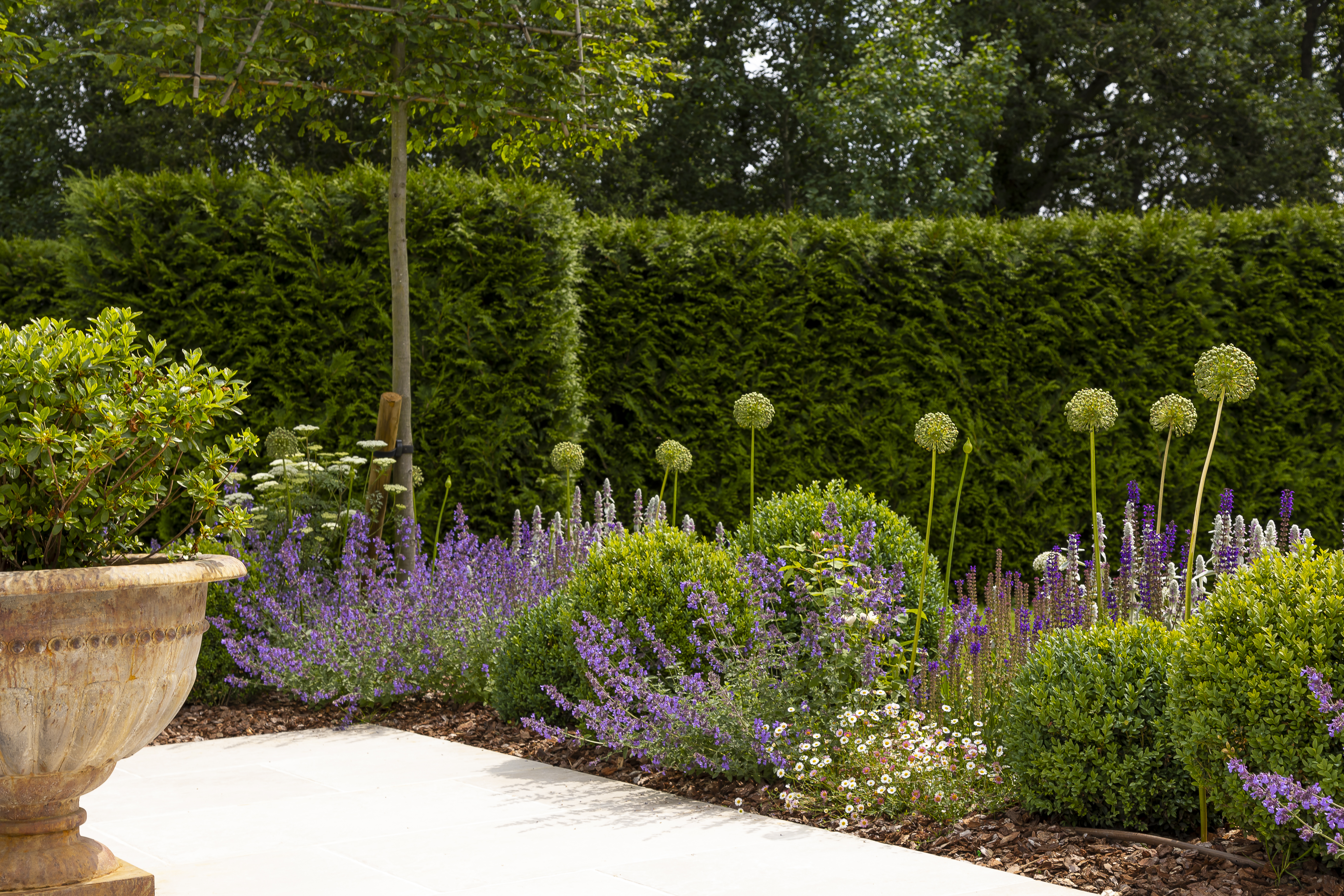
- Mow your lawn on a regular basis - little and often is by far the best policy
- Keep paths and patios swept and free from debris
- Feed lawns 3-4 times a year
- Gravel areas may need occasional weeding
- Mulch beds and borders well and pluck out any unwanted plants as soon as you see them
- Tie new shoots of climbing plants to their supports
- Dead head flowering plants regularly - if you are lucky you may get a second flush of flowers
- Keep on top of maintenance for sheds, decking and fencing.
- Prune shrubs once or twice a year to keep them in good shape
- Keep an eye out for signs of pests and diseases in plants and treat them promptly
- Keep pond filters nice and clean and remove excess leaf litter so as to keep the water fresh
- Sweep up autumn leaves and use them to create leaf mulch to use in the garden at a later date
- Trim hedges once or twice a year, being careful not to disturb nesting birds.
Many landscapers and garden designers are asked to create low maintenance gardens. And with careful selection of materials and plants, that’s certainly possible to do. However, there’s no such thing as a no-maintenance garden. Just as there’s no such thing as a self cleaning bathroom or a car that never needs servicing.
We’ll be adding some more detailed garden maintenance tips to our blog on a regular basis, but in the meantime, here’s a breakdown of how to maintain your garden.
Lawn Care
A natural lawn is a true asset to any garden, particularly when it’s in tip top condition. Your lawn however, is a living thing and as such it needs a certain amount of care and attention. Regular mowing and feeding are essential and you may also want to scarify and aerate the lawn once a year to really help the grass plants to thrive.
If you’ve opted to install an artificial lawn, you won’t need to mow it every week or dispose of the clippings. However, it will need brushing approximately 3-4 times a year in order to freshen it up and stop weeds and moss establishing in the sward. If pets or wildlife use your lawn area for toileting, you may want to wash it with a proprietary disinfectant from time to time, just to keep odours at bay.
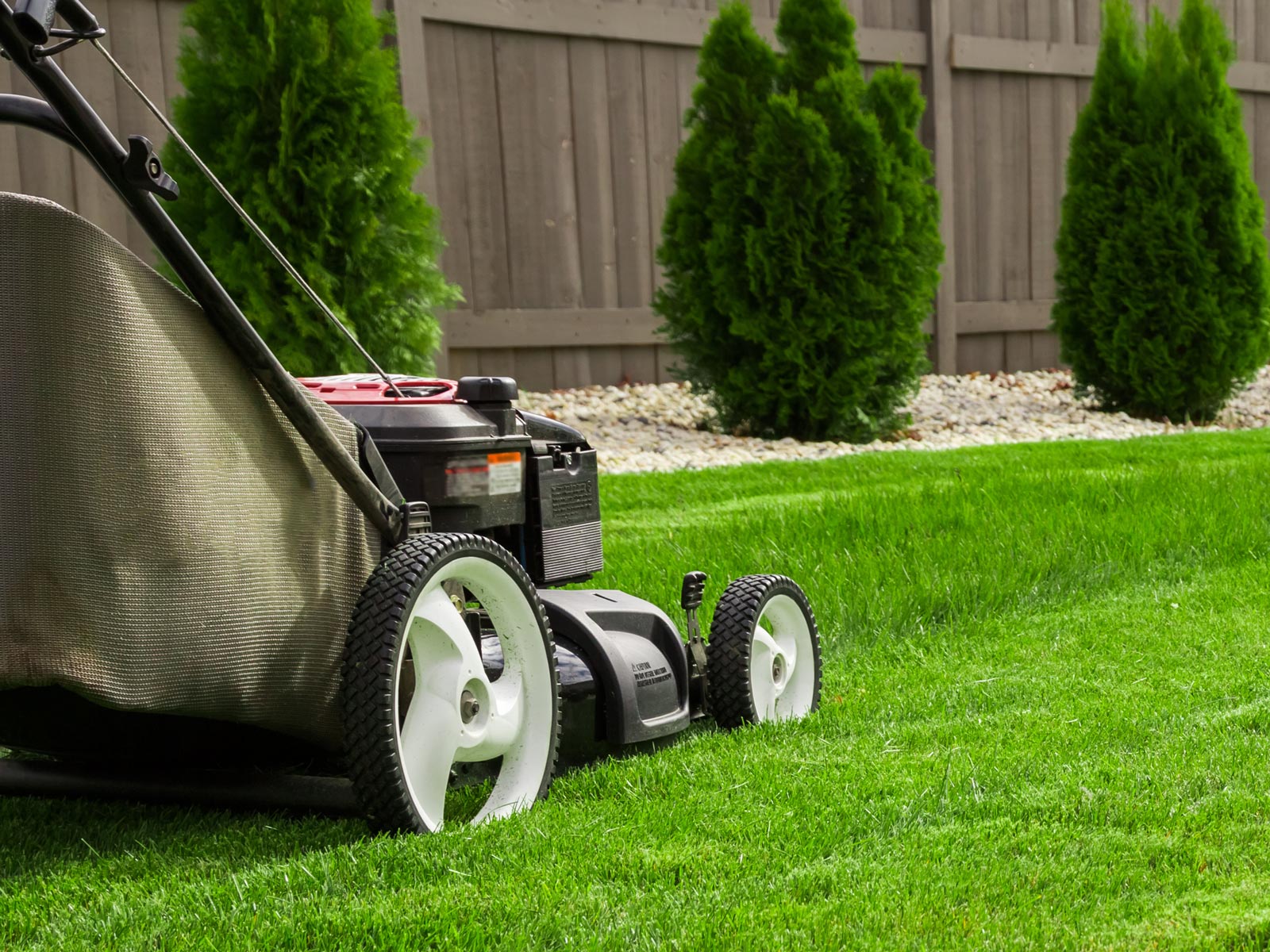
Trees and Hedges
Hedges are basically trees that have been pruned to keep them short. Left to its own devices a hedge will grow into a row of trees and the benefits will change. That means no more wind breaks or ground level privacy.
Keep hedges at the height, width and density you require by cutting them once or twice a year. Perfectly manicured hedges are the result of years of practice. It’s little wonder that many people hire a professional gardener for this particular garden task.
Newly planted trees will need regular watering for the first 12 months. Mature trees may need pruning from time to time. This is never a job for an amateur. Always consult a professional gardener or a qualified arborist.
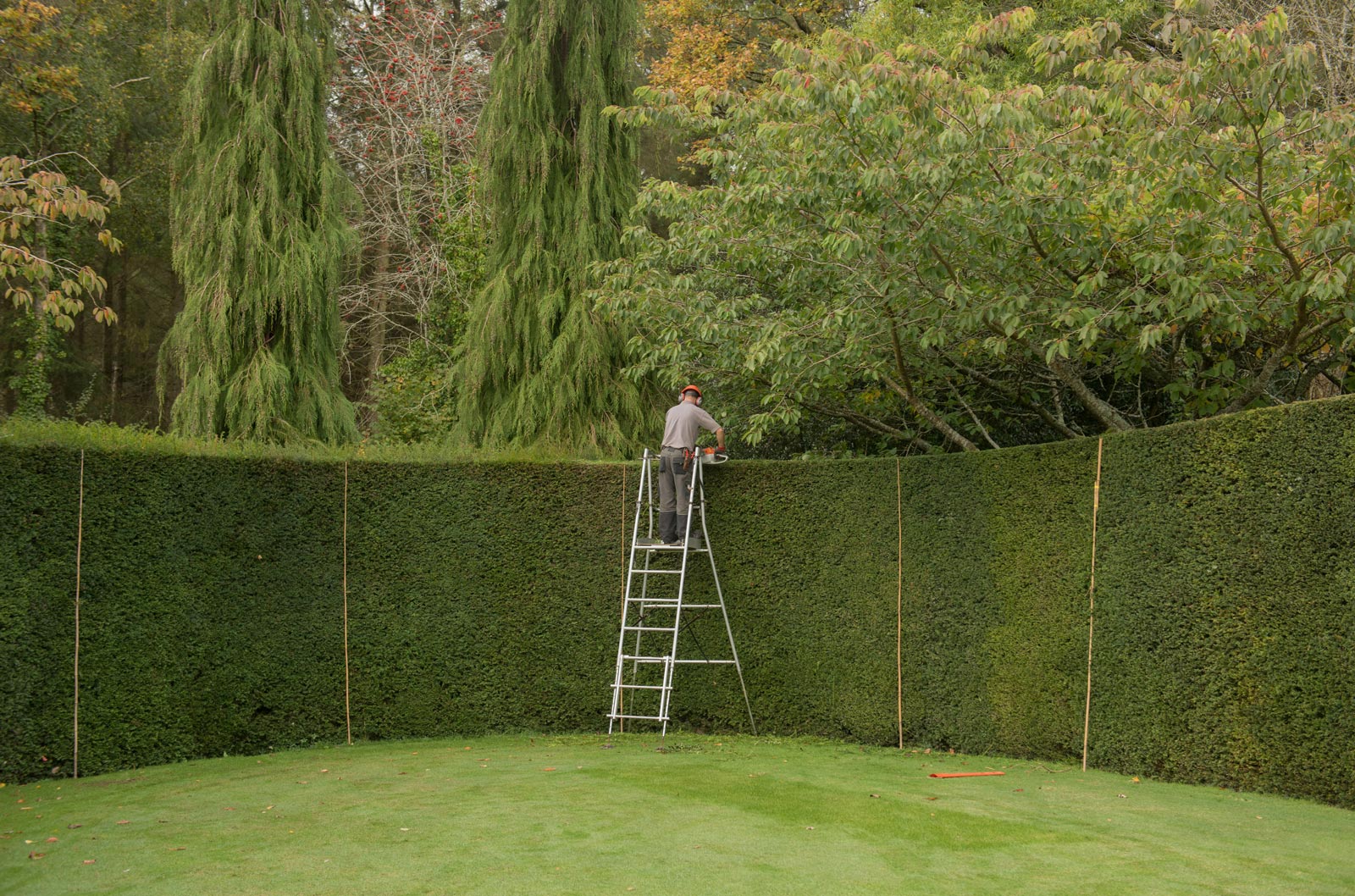
Looking After Paving and Decking Features
Hard Landscaping Features
Hard landscaping features such as paths, patios and driveways are relatively easy to maintain provided they’ve been properly installed in the first place. Sweeping and soft washing will keep stone surfaces looking vibrant. However, please avoid using a pressure washer - it’s too harsh and can damage the stone and the grout.
Timber Structures and Decking
Composite fencing and composite decking are great landscaping materials for a low maintenance garden. They don’t rot, they don’t fade and they don’t split. All they need is an occasional wash with mild detergent diluted in water.
Some natural timber structures are fairly self-reliant too. However, some fencing, decking and wooden furniture may need oiling every couple of years. It’s not a difficult job, but it can be boring.
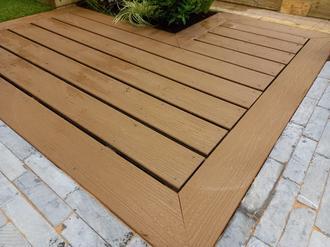
Beds and Borders
General care for beds and borders includes feeding, weeding, mulching, deadheading, pruning, watering and occasionally refreshing the planting. If you have managed to stick to the “right plant right place” rule, beds and borders will be relatively easy to care for. But if you’re not confident, or you feel overwhelmed by the task, it’s worth investing in the services of a professional gardener.
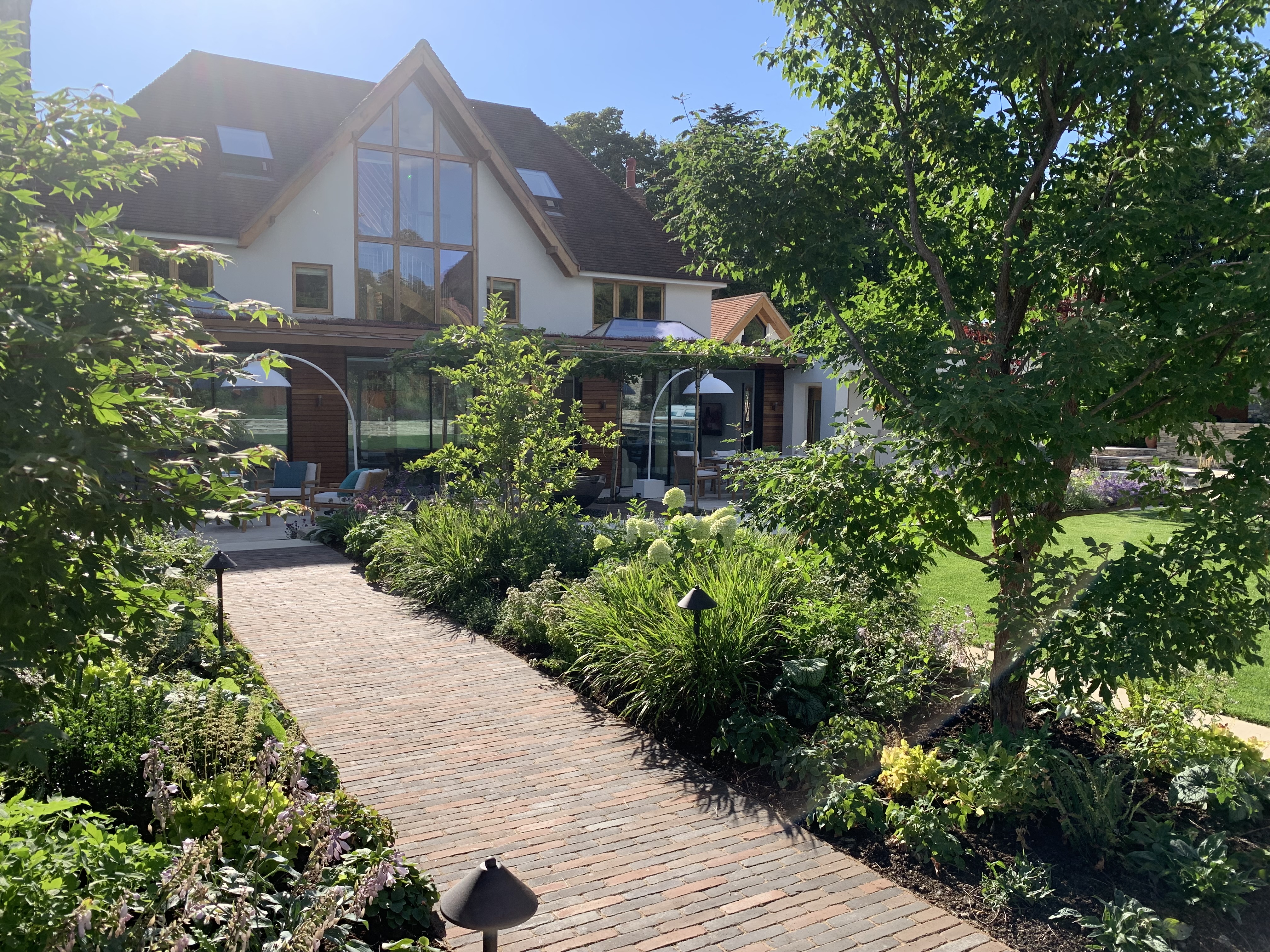
Water Features
Ponds and water features are beautiful garden features and if they’re big enough to support a balanced ecosystem, they will be largely self sustaining. However, a little bit of maintenance will never go amiss.
Filtration systems need to be regularly checked and cleaned. Autumn leaves should be skimmed off the surface of the pond before they sink. If not they will sink and decay anaerobically to form a stinky mess.
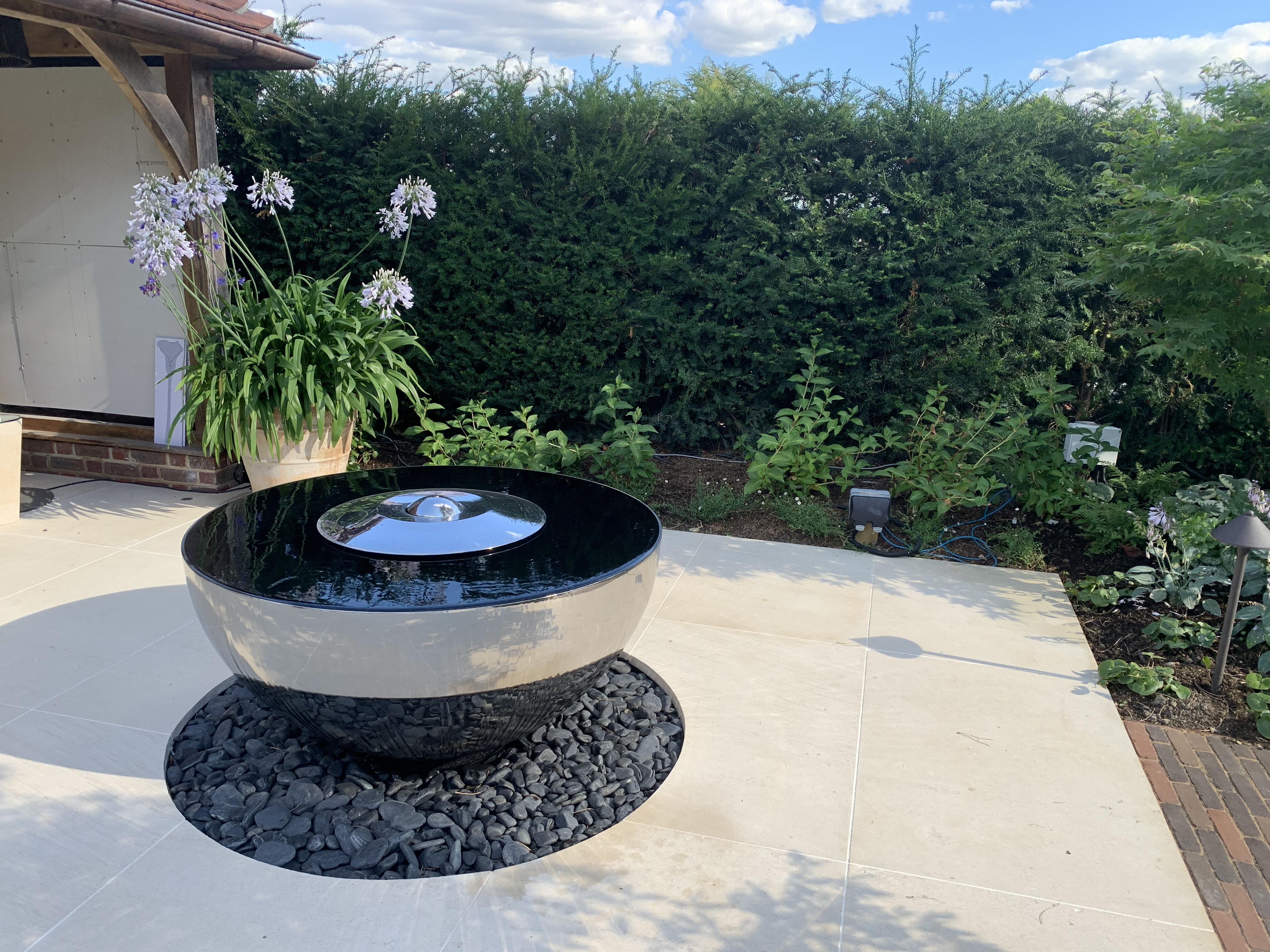
Help To Maintain Your Garden
Maintaining your garden to the level where you can feel proud of it involves quite a few tasks. Depending on the design of your garden, the materials used and its age, the workload will vary. But if you struggle with any aspect of garden maintenance, help is always at hand.
Your biggest challenge is to find a gardener who actually knows what they are doing. The gardening and landscaping industries in the UK are unregulated. Which means that anybody can nip down to the garden centre, buy a pair of secateurs and call themselves a gardener. However, a person can do a lot of damage with garden tools if they are neither trained nor experienced.
APL members are very carefully inspected to ensure that they have the correct knowledge and experience to maintain your garden well. They also need to provide proof that their business is fully insured. Only the best gardeners are allowed to display the coveted APL logo and Trustmark accreditation. Wise homeowners will hire an APL member to help them with all aspects of garden maintenance.
Click here to find a professional gardener in your area.
You may find these articles helpful.
Why Choose An APL Professional Gardener?
What Lies Beneath - the elements of garden construction that make it easier to maintain your garden.
